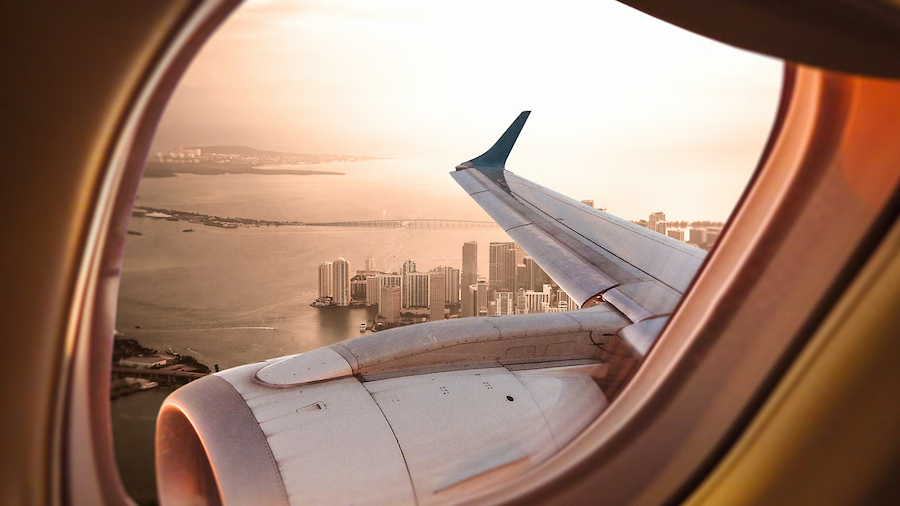Tips
How Much Does a Travel Agent Cost: A Clear Breakdown of Fees and Value

Many people wonder how much does a travel agent cost. The price for their services can range from $100 to several hundred dollars, depending on the trip and the type of help needed. Some agents charge flat fees, while others work on commissions or include their fee in the package price.
Travel agents can save time and sometimes money by finding deals and handling complex bookings. However, the exact cost depends on factors like the trip’s length, destination, and services requested. Knowing what affects the price helps travelers decide if using an agent fits their budget.
Key Takeways
- Travel agent fees vary widely based on the trip and service level.
- Costs depend on factors such as trip complexity and booking types.
- Using an agent can offer convenience and saved effort compared to DIY planning.
Average Costs Of Hiring A Travel Agent
Costs for using a travel agent vary based on how they charge and the types of trip planned. Some agents use fixed fees, while others work on commissions or hourly rates. The expense also changes depending on the complexity of the travel and services needed.
Standard Pricing Models
Travel agents mostly charge in one of three ways: flat fees, commissions, or hourly rates.
A flat fee is a set amount for services, often between $100 and $200, regardless of trip price. This model is common for straightforward bookings like flights or hotels.
Commission-based agents earn a percentage of the travel package cost, usually 10-15%. This fee is included in the booking price, not added later.
Some agents charge hourly rates, typically $50 to $150 per hour, for personalized planning or complex itineraries.
Many agents combine these models based on the trip’s needs.
Fee Structures For Different Services
Service fees vary by what the agent does. Booking flights alone might cost less than full vacation planning.
For example:
- Flight bookings often carry a $25-$50 service fee.
- Hotel reservations may be free if done alongside flights.
- Complete vacation packages can include planning fees of $100 or more.
- Group trips or specialized tours often have higher fees because of detailed work.
Some agents offer package deals covering all services with one price.
Additional services like travel insurance or visa assistance usually come with separate charges.
Cost Breakdown By Trip Type
The type of trip affects how much a travel agent costs.
- Simple trips (one-way flights or hotel stays) usually have low fees, about $25-$100.
- Domestic vacations with multiple stops or hotels typically cost between $100 and $200 for agent fees.
- International trips or cruises often cost $200 or more because of extra research and paperwork.
- Group tours can bring fees above $300 due to organizing many travelers.
More planning means higher costs, so prices rise with trip complexity.
Factors Influencing Travel Agent Fees
Travel agent fees vary based on several key factors. These include the type of agency, the services requested, and the destination and length of the trip. Each factor affects how much a traveler might pay for assistance.
Type Of Travel Agency
Different travel agencies charge different fees. Large agencies may have set service fees or work on commission from partners like airlines or hotels. These commissions can lower or even eliminate direct fees for the customer.
Independent or boutique agencies often charge a flat fee or hourly rate. They tend to offer more personalized service but can be more expensive. Online travel agents might have fewer fees but less personal help.
Understanding the agency’s pricing model helps travelers know what to expect before booking.
Service Complexity And Customization
Simple bookings, like buying a flight ticket, usually cost less. More complex requests, such as planning multi-stop trips, arranging group travel, or customizing activities, increase fees.
If a traveler needs detailed advice, tailored itineraries, or 24/7 support, the agent charges more for the time and expertise involved.
Service packages vary and can include flight and hotel bundles, travel insurance, or visa help. The more detailed the service, the higher the fee.
Destination And Duration
Longer trips or visits to remote and expensive countries often increase agent fees. Complex travel plans with multiple countries or unusual destinations require more research and coordination.
Short domestic trips usually cost less to book than international or multi-week vacations. Travel agents may charge extra for special accommodations like luxury hotels or unique experiences.
The length and location of the trip affect how much work the agent must do, which impacts the price.
Comparing Travel Agent Costs To DIY Booking
Choosing between a travel agent and booking trips independently involves weighing both visible fees and hidden expenses. Understanding the real value of each option helps travelers make informed decisions about time, money, and services.
Hidden Costs And Value
Travel agents may charge upfront fees, like flat fees or commissions, but these do not always show the full picture. Sometimes, agents get access to special deals or upgrades that travelers booking themselves cannot see.
DIY booking can seem cheaper, but it may come with hidden costs such as spending extra time researching and handling mistakes without support. Travelers might miss out on travel insurance or flexible cancellation options unless they look closely.
Using a travel agent can save money indirectly by avoiding costly errors and getting expert advice on destination rules or visa needs. The value lies in convenience and the peace of mind that someone else manages the logistics.
Savings And Benefits
Travel agents can negotiate group discounts or bundle deals on flights, hotels, and tours that reduce overall costs. They also provide personalized recommendations that fit a traveler’s budget and preferences, potentially avoiding overspending on unnecessary extras.
Doing it yourself gives full control over choices but requires more effort to compare prices and read reviews. Time spent finding the best deals can add up, especially if plans change and cancellations are needed.
Agents often include perks such as free upgrades, room credits, or priority boarding, which are harder to get when booking independently. These extras may make the commission or fees worth paying for many travelers.
Frequently Asked Questions
What fees do travel agents typically charge for domestic travel arrangements?
Travel agents usually charge around $25 to $50 per booking for domestic trips. Some may include fees for flight changes or cancellations.
How do travel agency rates vary for international trip bookings?
International trips often cost more, with fees ranging from $50 to $100 or higher. More planning and coordination are needed, so travel agents charge more for these services.
Are there monthly fees associated with using a travel agent, and what do they cover?
Some travel agents or agencies charge monthly membership fees, usually between $10 and $30. These fees cover extra perks like personalized support and exclusive deals.
What commission does a standard travel agent earn from booking?
Travel agents typically earn 10% to 15% commission on hotels, tours, and packages. Airlines often pay lower or no commission.
What are the potential additional costs when booking with a travel agent?
Additional costs can include service fees for cancellations, itinerary changes, or special requests. Sometimes agents charge for travel insurance or visa help.
Can the value provided by a travel agent justify their cost?
Travel agents can save time and prevent costly mistakes by providing expert advice. For complex trips, their knowledge and planning often make their fees worth paying.




